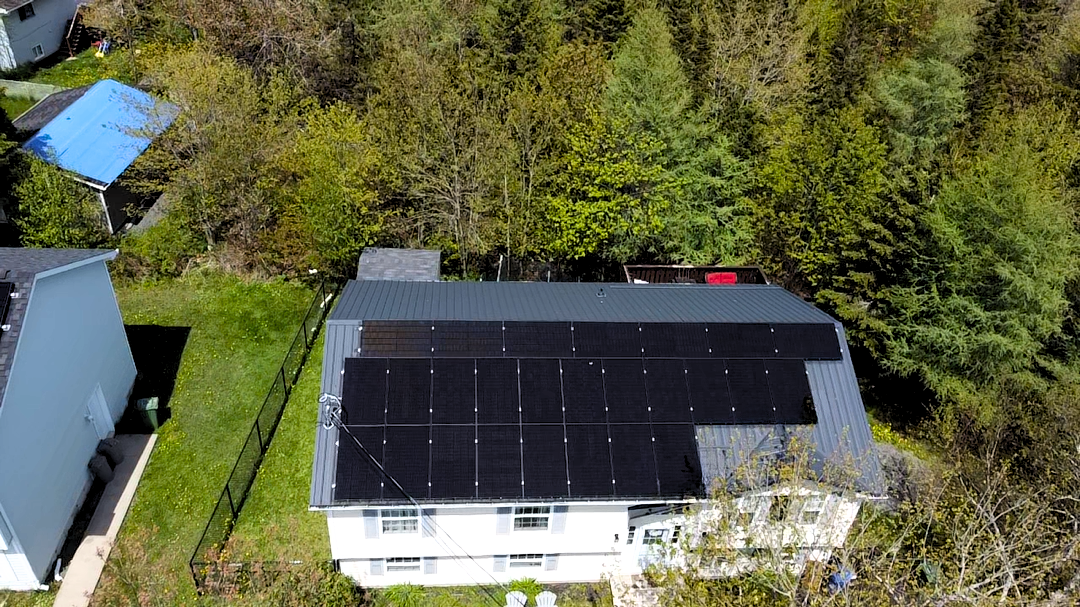How to Quickly Save Energy By Heating Your Outdoor Pool With Solar
Owning a home with a swimming pool is sure to make you popular come summer, but with the prestige comes a little maintenance. The annual cost to own a pool is $3,000 to $5,000, which includes maintenance, repairs, electricity, and water. That might sound like a lot up front, but many homeowners say the cost to maintain a pool is well worth it for the enjoyment their outdoor oasis provides for friends and family.
As lovely as having an outdoor pool is, heating the outdoor pool is an expensive affair. So, what if we told you there was a way to decrease one of the most expensive pool maintenance costs? Better yet, what if you could do it without harming the environment or drastically overhauling your property? Wouldn’t you want to learn more about it?
The simple answer is solar energy. Many homeowners are turning to solar panels to help heat their pools, and reduce their maintenance bills.
Surprisingly, heating your pool with solar panels is easier and more affordable than you think. The installation can be done in as little as a week or two, so you can have your panels up and running in no time. Once the system is set up, it’s also completely automated, so you don’t have to think about it much in the future.
How Does Solar Pool Heating Work?
Most solar pool heating systems include the following:
- A solar collector -- the device through which pool water is circulated to be heated by the sun
- A filter -- removes debris before water is pumped through the collector
- A pump -- circulates water through the filter and collector and back to the pool
- A flow control valve -- an automatic or manual device that diverts pool water through the solar collector.
Pool water is pumped through the filter and then through the solar collector(s), where it is heated before it is returned to the pool. In hot climates, the collector(s) can also be used to cool the pool during peak summer months by circulating the water through the collector(s) at night.
Some systems include sensors and an automatic or manual valve to divert water through the collector(s) when the collector temperature is sufficiently greater than the pool temperature. When the collector temperature is similar to the pool temperature, filtered water simply bypasses the collector(s) and is returned to the pool.
There are different types of solar panel collectors, made out of different materials. The type you'll need depends on your climate and how you intend to use the collector. If you'll only be using your pool when temperatures are above freezing, then you'll probably only need an unglazed collector system. They’re called “unglazed” because they don’t have a glass covering (or “glazing”) to catch heat. Instead, they are made from industrial-grade rubber or plastic. Glazed panels are only used in colder climates since they work to heat water in temperatures that fall below freezing.
Because of their inexpensive parts and simple design, unglazed collectors are usually less expensive than glazed collectors. These unglazed systems can even work for indoor pools in cold climates if the system is designed to drain back to the pool when not in use. Even if you have to shut the system down during cold weather, unglazed collectors may be more cost-effective than installing a more expensive glazed collector system.
SELECTING A SOLAR POOL HEATER
A solar pool heating system usually costs between $3,000 and $4,000 to buy and install. This provides a payback of between 1.5 and 7 years, depending on your local fuel costs. They also typically last longer than gas and heat pump pool heaters. Your actual cost and payback depend on many factors. Therefore, before you purchase and install a solar pool heating system, you should do the following:
- Evaluate your site's solar resource
- Determine the correct system size
- Determine the correct orientation and tilt for the collector
- Determine the system's efficiency
- Compare system costs
- Investigate local codes, covenants, and regulations.
Solar pool heating system is your best option for heating your outdoor pool compared to a conventional heat pump, gas, propane, or electric heater - in fact, good quality solar pool collectors will typically last 15 to 20 years. Routine maintenance tasks are simple and generally boil down to checking the pool’s chemical balance and filtering system and cleaning glazed collectors.
Still have questions about using solar power to heat your pool?
Aztek Solar is here to help. Schedule a free consultation with the Aztek Solar Team today.
Thanks for Reading!
Brian McKay
(aka The Solar Guy)


For more information about a Solar Energy Solution, including Whole Home Solar PV and Solar Pool Heating solutions for your home or business, please contact AZTEK SOLAR for your free on-site evaluation and ask about the $3,000 cash-back rebate now available.
AZTEK SOLAR is a leading Nova Scotia residential and commercial solar installer, serving Halifax, Dartmouth and the surrounding areas throughout rural Nova Scotia.
With expertise in a wide variety of systems, including Solar PV (grid-tied) systems, solar hot water and solar pool heating systems, AZTEK SOLAR has helped hundreds of Atlantic Canadian homeowners, farm operations, business owners and municipalities lower their energy bills while reducing their carbon footprint.
#SolarIsNow #RenewableEnergy #AztekSolar



